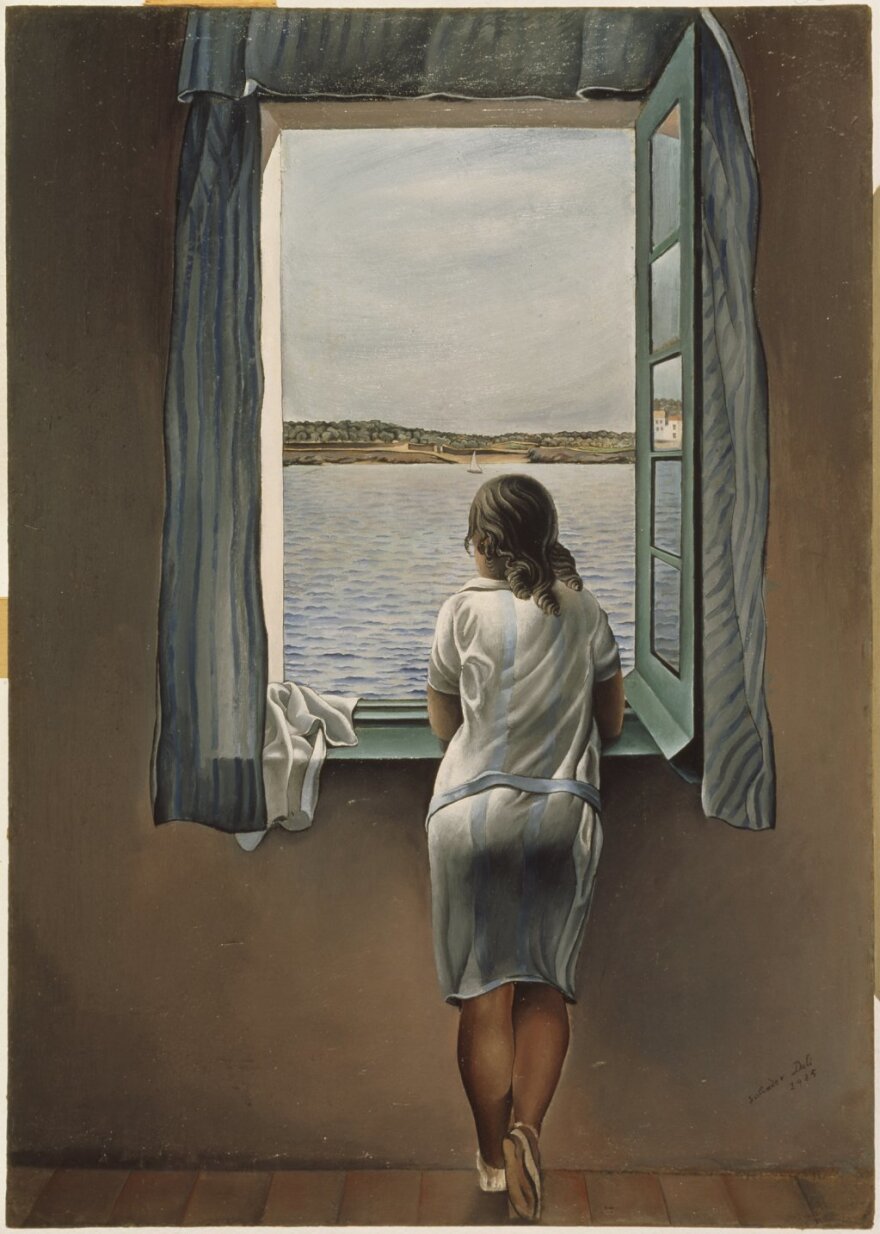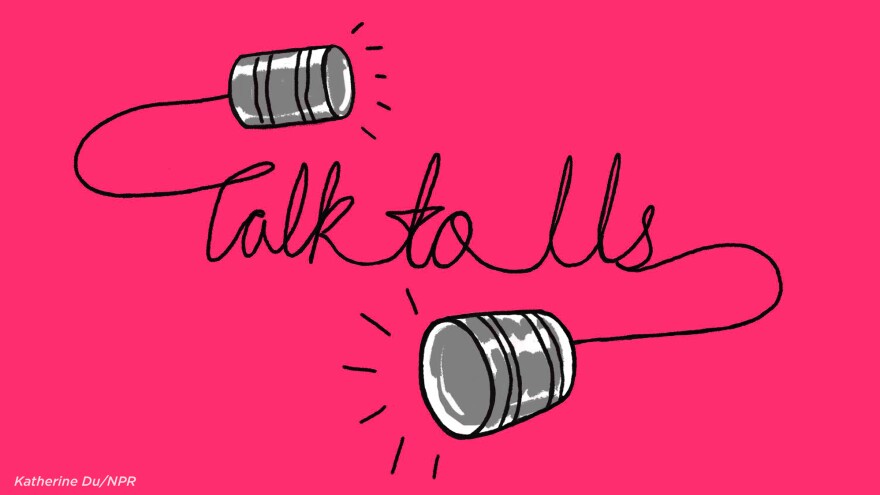For those who follow poetry challenges on Morning Edition, our new one involves a vocabulary lesson: ekphrastic.
Ekphrastic poems respond to a piece of art.
According to the Poetry Foundation:
Through the imaginative act of narrating and reflecting on the 'action' of a painting or sculpture, the poet may amplify and expand its meaning."
For this challenge, Morning Edition poet-in-residence Kwame Alexander has selected two paintings to inspire you: Heat Wave by Kadir Nelson and Young Woman At A Window by Salvador Dali.

The two paintings are different in time, place and style, but they both show a woman who appears to be deep in thought, looking out onto a part of the world. What do you see when you see these paintings? Can you feel their thoughts or their sense of place in the world? Are there consistencies or differences? If we value the experience of others, what can we draw from these images?

Submit your ekphrastic poem here. It can be a haiku, free verse or a rhyming poem, it doesn't matter – but please cap your poems at 10 lines. (Click here to read examples of ekphrastic poems – and see the paintings that inspired them.)
Alexander will take lines and excerpts from some of your submissions and create a crowdsourced, community poem. Alexander and Morning Edition host Rachel Martin will read it on air, and NPR will publish it online, where contributors will be credited.
Here are the terms of the callout:
By providing your Submission to us, you agree that you have read, understand and accept the following terms in relation to the content and information (your "Submission") you are providing to National Public Radio ("NPR," "us," or "our"):
You are submitting content pursuant to a call out by Morning Edition related to a segment with Kwame Alexander wherein he creates unique poetry based on listener submissions. You understand that you are submitting content for the purpose of having Kwame use that content to create a new poem or poems ("Poem") with the material you submit. You must be over the age of 18 to submit material.
You will retain copyright in your Submission, but agree that NPR and/or Kwame Alexander may edit, modify, use, excerpt, publish, adapt or otherwise make derivative works from your Submission and use your Submission or derivative works in whole or in part in any media or format and/or use the Submission or Poem for journalistic and/or promotional purposes generally, and may allow others to do so. You understand that the Poem created by Kwame Alexander will be a new creative work and may be distributed through NPR's programs (or other media), and the Poem and programs can be separately subject to copyright protection. Your Submission does not plagiarize or otherwise infringe any third party copyright, moral rights, or any other intellectual property rights or similar rights. You have not copied any part of your Submission from another source. If your Submission is selected for inclusion in the Poem, you will be acknowledged in a list of contributors on NPR's website or otherwise receive appropriate credit, but failure to do so shall not be deemed a breach of your rights.
Your submission will be governed by our general Terms of Use and Privacy Policy. As the Privacy Policy says, we want you to be aware that there may be circumstances in which the exemptions provided under law for journalistic activities or freedom of expression may override privacy rights you might otherwise have.
Copyright 2022 NPR. To see more, visit https://www.npr.org.



